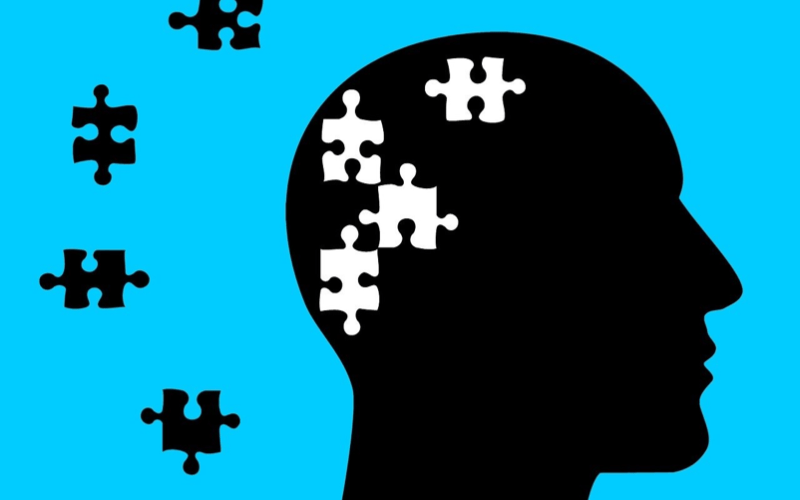Having multiple languages in one’s sleeve is a superpower not everyone could have.
But have you wondered how multilinguals and polyglots could keep accumulating languages and retain them in their heads?
The answer: They can’t. They forget a lot of knowledge along the way.
When every language learner is bound to forget, myself included, what can we do with it? Do we even have to do something with it?
Can You Forget a Language?
The best model for forgetting was designed by Hermann Ebbinghaus, which he came up after memorizing blobs of useless information. It’s now known as the forgetting curve.
The forgetting curve applies to any information you store in your brain, including the knowledge of languages. In fact, when you learn new information, most of them could be forgotten almost INSTANTLY or in a short time.
That means if you were learning new words and grammar, expect that a significant portion could get lost overnight when you wake up. You know that moment when you were watching a lesson, but then after the video it feels as if you remembered nothing?
You’re not alone – everyone goes through this struggle all the time, including myself!
You can go ahead and study memory techniques taught by the best memory champions. Ultimately, you just can’t retain everything. Your brain is not a pail of water that can be filled, more like it’s a pail of water with leaks in it!
Forgetting a Foreign Language
At some point, you may have mustered the motivation to explore a new foreign language (in my case I tried opening Chinese, Japanese, and German). But because motivation tends to be seasonal, at some point you might stop studying the language.
That marks the beginning of forgetting – when you stop using the language you’ve learned.
It’s fairly understandable since you have so many things going on in your life. Maybe at this point studying languages isn’t your priority.
To be fair, not everything you learned will go away. You could forget a grammar rule or two, lose more than half of the vocabulary you crammed, or sometimes forget the video lessons you took. But the net result guarantees that you retain some knowledge even if significant time has passed.
If you are goal-oriented, however, like if you’re taking the JLPT test in 3 months, or need to become fluent for work abroad, forgetting can be your worst enemy.
Forgetting Your Native Language
But what happens if you also forget your native language?
Actually, the reason why you would forget is not different with a foreign language – you’re simply not using it.
With a native language, you could have been born in a country where your native language is spoken, but you end up moving to another country and get immersed in their language and culture. In which case, you wouldn’t need your native tongue if it’s not present in your proximity.
Or, you did experience your native tongue, but moved to another country years later.
Why You Shouldn’t Worry About Forgetting
Whichever your case, there’s really nothing wrong about forgetting languages, be it a foreign or native language.
The key, is to maintain it.
If you don’t use your newly learned language, the connections in the brain weaken until they’re gone.
1. Active Recall
The first way to do it is by practicing active recall on the language you want to keep. Basically any practice that forces you to bring up information from your memory will exercise your recalling skills.
Why does this work? Because every recall provides an important piece of “feedback” – Do you remember the information or not?
If you can’t remember it clearly, it might suggest that you’re forgetting a portion of what you’ve learned.
There are various techniques to help facilitate recalling, such as spaced repetition, testing, or even just holding a conversation with a native.
2. Relearn the Language
The second option to keep yourself against the decay of memory, which works just as good, is to stop learning the language all along then coming back later to relearn the language you’ve lost.
Relearning isn’t that daunting – you’ve already established connections in your memory in the past, all you’re doing is bringing them back, plus coming back strong and with more knowledge.
The issue that I’ve encountered personally is having the motivation to actually do the relearning. It sometimes feels awful to sit down and come back to my Korean lessons. Yet when I try to recall without studying, I find myself already forgetting a lot, which hurts my self-confidence with Korean.
3. Prioritize Languages
You might not end up keeping all the languages you’ve learned, but you can focus on several languages and give more importance to them.
Benny Lewis, the Irish polyglot and founder of Fluent in 3 Months, admits to forgetting several languages while keeping a strong foundation on 7 of them.
The truth is, your priorities change over time. You may be inclined to brush up on Thai for the upcoming vacation, but I won’t be surprised if you stop learning it after the trip.
However, some languages you learn could make it past the hype – you end up falling in love for them and decide to pursue them to fluency. That is a sign to make the language a priority over everything else.
With this expectation to learn the language on a deeper level, you won’t easily forget the language and would value retaining the knowledge for a long time.
Final Word
This statement is worth repeating: Forgetting languages is the default, whether you like it or not.
All you’re really doing is prolonging the knowledge of languages in your head, using techniques to retain them in your memory for a longer time.
So relax. Lose some knowledge. And just keep learning.
